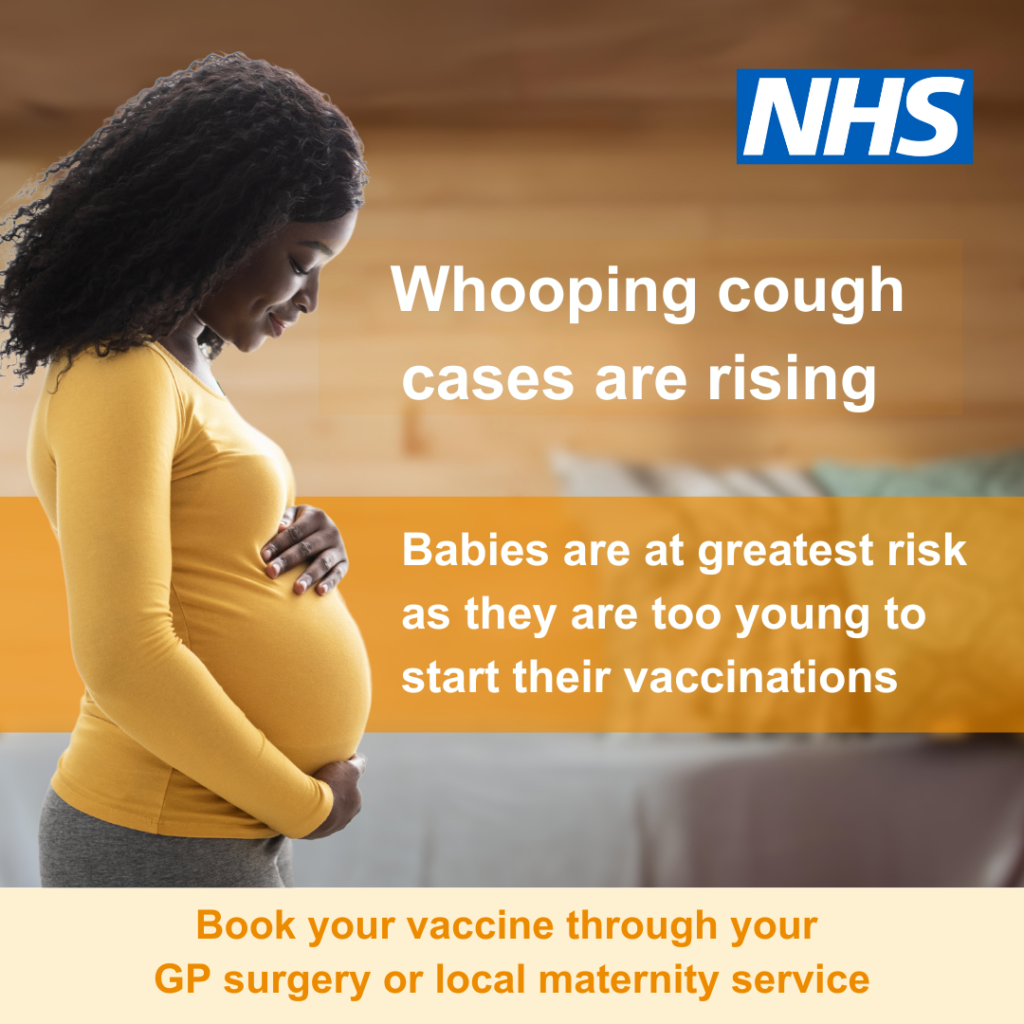Whooping cough vaccination

Whooping cough (pertussis) cases continue to increase and babies who are too young to start their vaccinations are at greatest risk.
Whooping cough can be serious for babies and may lead to complications resulting in hospitalisation and even death. Sadly, between January and March 2024, five infants died from whooping cough.
If you are pregnant, you can help protect your baby by getting the whooping cough (pertussis) vaccine. Vaccination during pregnancy boosts your antibodies which are then passed to your baby to help protect them from the day they are born.
You will normally receive your whooping cough vaccine around the time of your mid-pregnancy scan (usually 20 weeks) but you can receive it from 16 weeks. If you have reached 20 weeks of pregnancy and have not yet been offered the whooping cough vaccine, please ask your midwife or GP surgery.
Vaccination in pregnancy provides very high levels of protection against serious whooping cough disease to your baby at least until they can have their first vaccine at 8 weeks of age. It is recommended in every pregnancy to boost the antibodies you pass on to your baby.
To give your baby the best protection, you should try and get the vaccine before 32 weeks but if you have missed out you can still have it later. You can even have it after you give birth, to reduce your risk of spreading whooping cough to your baby.
You can access a whooping cough vaccine from your GP surgery and through some antenatal clinics and youmay beoffered the vaccination at a routine antenatal appointment. For further advice on getting your whooping cough vaccination in your area, speak with your local GP surgery or midwife.
The NHS is encouraging staff who come into contact with people who are pregnant to signpost or offer this vaccination at every opportunity.
You can also check your child is up to date with their childhood vaccinations, including whooping cough, and if they have missed any they can catch up at their GP surgery at any time.